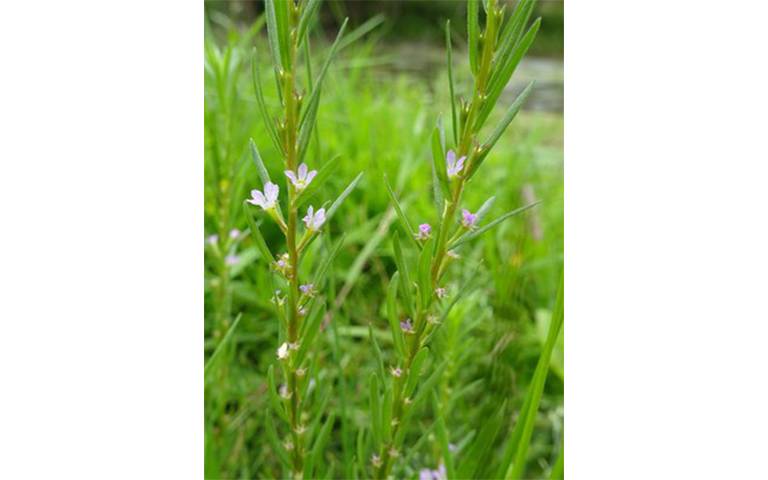Rediscovery of ancient wetland plant
20 December 2020
Ponds Group attracts national interest

In the last week of November the work of UCL Geography’s Pond Restoration Research Group hit the press with the rediscovery of a rare and endangered wetland plant.
In late summer 2020 the Ponds team were surveying in mid-Norfolk along the high water mark of a farmland pond restored last winter by the Norfolk Ponds Project.
At the very end of the day, out of the corner of an eye, a plant was seen that was not immediately recognised. Professor Carl Sayer sent a photograph to a local botanical expert, and six plants of Grass-poly Lythrum hyssopifolia L. were confirmed. This is the first confirmed record of the plant seen in Norfolk for over a century.
The UCL Ponds team have previously demonstrated that the seeds of many wetland plants are extremely long-lived. Remarkably, even ponds in-filled and ploughed more than 150 years ago (so-called ‘Ghost Ponds’) have been shown to support viable seeds.
The next question with Grass-poly is how to keep it going and increase its population. UCL Geography’s Helen Greaves has a plan:
“As regular disturbance is needed for the survival of Grass-Poly, we have been thinking about how we can maintain our population. We might need to carry out regular winter raking or introduce some cows or maybe a Christmas pantomime horse would suffice if we get stuck."
“"Whatever the method, we are desperately keen to keep the plant above ground now it has come back to us”.
The Grass-poly story was covered in a BBC News article, and was featured on BBC Radio 4 and the BBC Breakfast programme. Carl was also interviewed on BBC News 24.
 Close
Close

